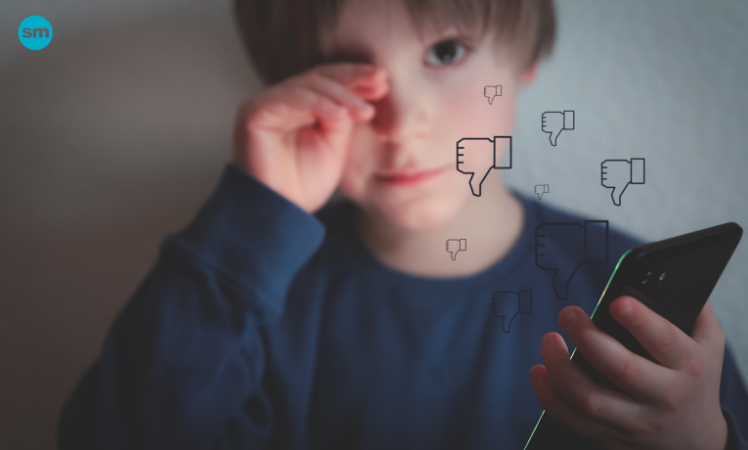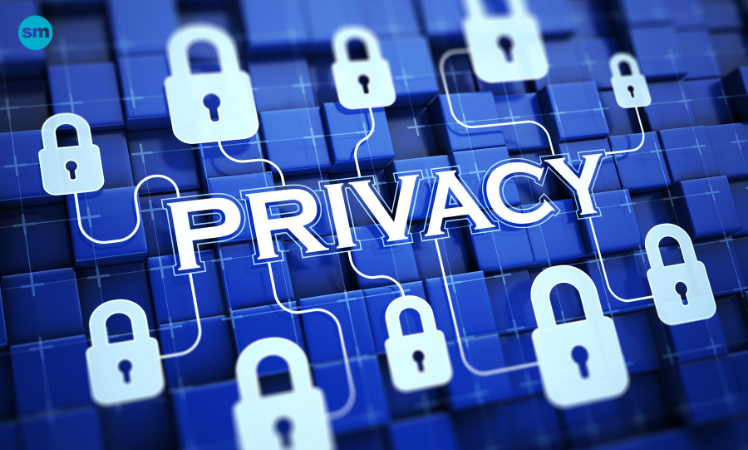How To Prevent Cyberbullying: 9 Things to Know

Last Updated on May 4, 2024 by Kathy
Cyberbullying has become a major social problem in online communities. As a single mother, how can you prevent cyberbullying harm your children?
Cyberbullying Facts
One in five teens has been cyberbullied, according to research. 29% of teens have been bullied online. Cyberbullying escalated during the COVID-19 epidemic. Research shows that cyberbullying rose 70% during stay-at-home orders and that toxicity on online gaming platforms increased by 40%.
These statistics show that cyberbullying continues to increase despite better education and school bullying prevention programs. Parents must do everything they can to stop cyberbullying in the lives of their children.
Why Prevent Cyberbullying Is Important
Cyberbullying refers to the deliberate and repeated inflicting of harm via electronic devices, online gaming apps, or social media platforms. Cyberbullying can manifest as hate accounts, harmful social media posts, online gossip, and mean comments while playing. Almost always, the intention is to humiliate, threaten, or intimidate the target.
Cyberbullied people suffer from a variety of consequences. These include academic difficulties, emotional, physical, and mental problems. Cyberbullying can be a major stressor in a young person’s life. This can also leave young people feeling embarrassed, hurt, and even scared.
They often feel extremely stressed and are often unable to take responsibility for the harassment and torment they endure. One study revealed that 35% of cyberbullies victims reported stress symptoms.
They Target “Weaker” Children

Cyberbullies may also target children who are suffering from physical symptoms due to stress. They might experience stomach pains, headaches, skin conditions or other symptoms. The act can have a negative impact on kids’ eating and sleeping habits. Cyberbullying can cause kids to crash diet or binge-eat in an effort to cope with cyberbullying.
Harassment can also affect grades and extracurricular activities. Cyberbullying can cause teens to skip school and make it difficult for them to concentrate on their studies. Its victims often feel isolated and alone. Many victims report feeling isolated and rejected at school. This can impact their self-esteem, self-worth, and self-worth.5 Cyberbullying can also lead to self-harm, and even suicide thoughts.
Children can feel helpless if they are constantly harassed by other children via social media, text messages and instant messaging. Children may believe that suicide is the only way out of the pain and suffering caused by cyberbullying.
For support and guidance from a trained counselor, call the National Suicide Prevention Lifeline at 1-800-273-8255 if your teen or tween is experiencing suicidal thoughts. Call 911 if they are in immediate danger.
How to Prevent Cyberbullying
Although there is no way to stop your child being cyberbullied, there may be things you can do together that will reduce the chances of them ever being targeted. You can implement safety measures and have ongoing discussions about cyberbullying.
It is important to talk about cyberbullying, its risks, and the potential consequences. Talk to your teens and tweens about social media safety and responsible use, and what to do if bullied online.
Protect Accounts and Devices to Prevent Cyberbullying
It is important for your child to use passwords when it comes to cyberbullying and other similar behavior like catfishing. Passwords are the best way to protect your accounts and devices.
Your child should not share their passwords with anyone, even their best friend. Although they may feel that they can trust their friend implicitly, the truth is that they will be friends for life.
Use Privacy Tools and Settings
Your teen should be aware of all privacy settings and tools available to them online. Privacy settings are available on almost every social media platform, including Instagram, Twitter and SnapChat. Assist your child in setting up the best privacy settings. You can make accounts private and prevent others from tagging them.
Keep Personal Stuff Private to Prevent Cyberbullying
Online, children should not share their email address, mobile phone number or address. Children should not share too much information about their school, especially with friends and followers they do not know.
Remember that people may not always be who they say they are online. The profile photo may be of a teenage girl but that does not mean the account owner is a teenage girl. Someone could pretend to be a teenage girl to get information about other teens.
Manage Location Sharing
Smartphones allow you to share your location with your friends. If they share their location with others, they will always know where they’re at all times. Discuss with your child who they are able to share their location with and if it is possible.
Some photos taken with smartphones include geotags to indicate the location of the photo. These photos can be used by others to find your child’s exact location even if the photo does not mention its origin.
It is important for your child to be aware of which photos they share and when. You might ask them to stop posting vacation photos until they return from vacation. This way, you are not letting the entire online world know that no one is at your home for the next two weeks.
Teach Them to Think Before Posting
Encourage your teens and tweens to take some time before posting. They could, for example, create a post offline. Then they can come back to it after an hour to decide if it is still worth posting. This will prevent them from making mistakes later.
Cyberbullies could take what your child has posted and make it against you in some way. It might be helpful for your child to slow down before they post. It doesn’t matter what content someone uses against you, however.
Your child can take their time and write a post. This will allow them to reflect on what they have written and decide if it is something they would like to share publicly. This is a great way for children to practice social media skills and maintain healthy relationships. Your tween/teen must also learn digital etiquette.
Conduct a Social Media Audit to Prevent Cyberbullying
Each month, get together with your teen or tween to go through all of their social media accounts. You can then determine which posts should be deleted. This is particularly important for those who are applying to college or looking for a job.
Many times, college recruiters or hiring managers will review applicants’ social media accounts to gain a sense of their character and personality. As a family, ensure that your teen is sharing the same message through their posts and photos.
Log Out When Using Public Devices
Your teen or tween should remind you that they must log out of all accounts they use when using public computers at school or the library. Logging out of email, social media accounts and Amazon accounts is a good idea.
It is not enough to close the tab. You may still be able access your child’s account if someone logs on to the computer right after you are done. Once they have access to the account, they can change passwords and take control.
They can make fake posts and comments online that will make your child look bad once they have full control. It can also be time-consuming and difficult to regain control of an account after you have lost access.
Refuse to Respond to Cyberbullies
Your child should not respond to cyberbullying if they have been the victim. They should not respond to cyberbullies, nor argue or try to explain.
Cyberbullies want an emotional response. If your child refuses, they will be left with unresolved communications. They should also take photos of the harassment to prove the incident. These documents may be required to report a cyberbully.
Report CyberBullies Play a Huge Role to Prevent Cyberbullying
Your child should be aware that cyberbullying must always be reported to you. Not only should you tell your child what’s happening, but also let the internet service provider and social media platforms know. To end the harassment, you may need to contact your school or police.
After all reports have been filed you can take appropriate steps to remove the account or person responsible for cyberbullying. While it doesn’t stop them from cyberbullying your teen or tween, it will slow down their behavior.
Teens should also learn to be good role models. They should not participate in cyberbullying or support those being bullied online. They should also report what they witness online to a responsible adult like you, a teacher, or a principal–especially if they know who is doing the cyberbullying.
Cyberbullying occurs more often when kids are targeted by friends from school or the community. If the victim isn’t getting the response they desire, standing up for them can prevent future cyberbullying.







